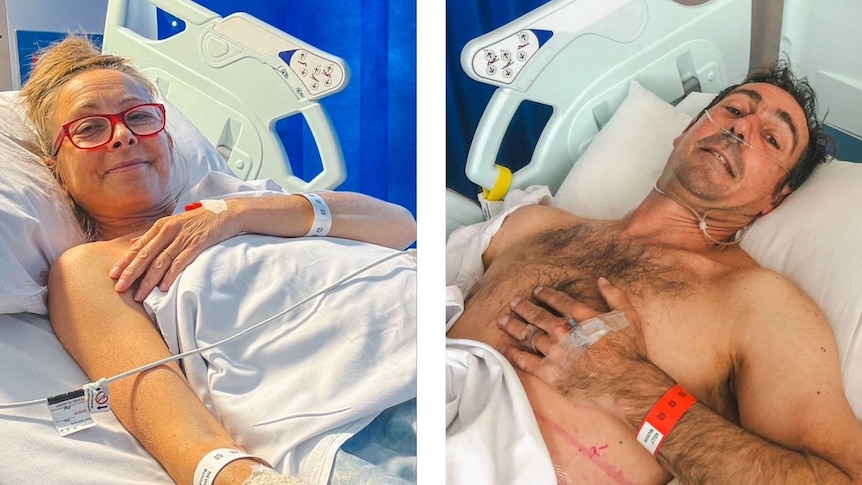Belinda Newick had always held onto the hope of avoiding the need for a kidney transplant, but as she reached the age of 48, the jewellery artist and mother-of-two found herself facing the possibility of renal failure. She described experiencing extreme fatigue, significant pain, breathlessness, and difficulty with daily tasks like preparing dinner for her family. This situation led her to struggle with eating and digesting food properly. In Australia, a record number of individuals are in need of kidneys.
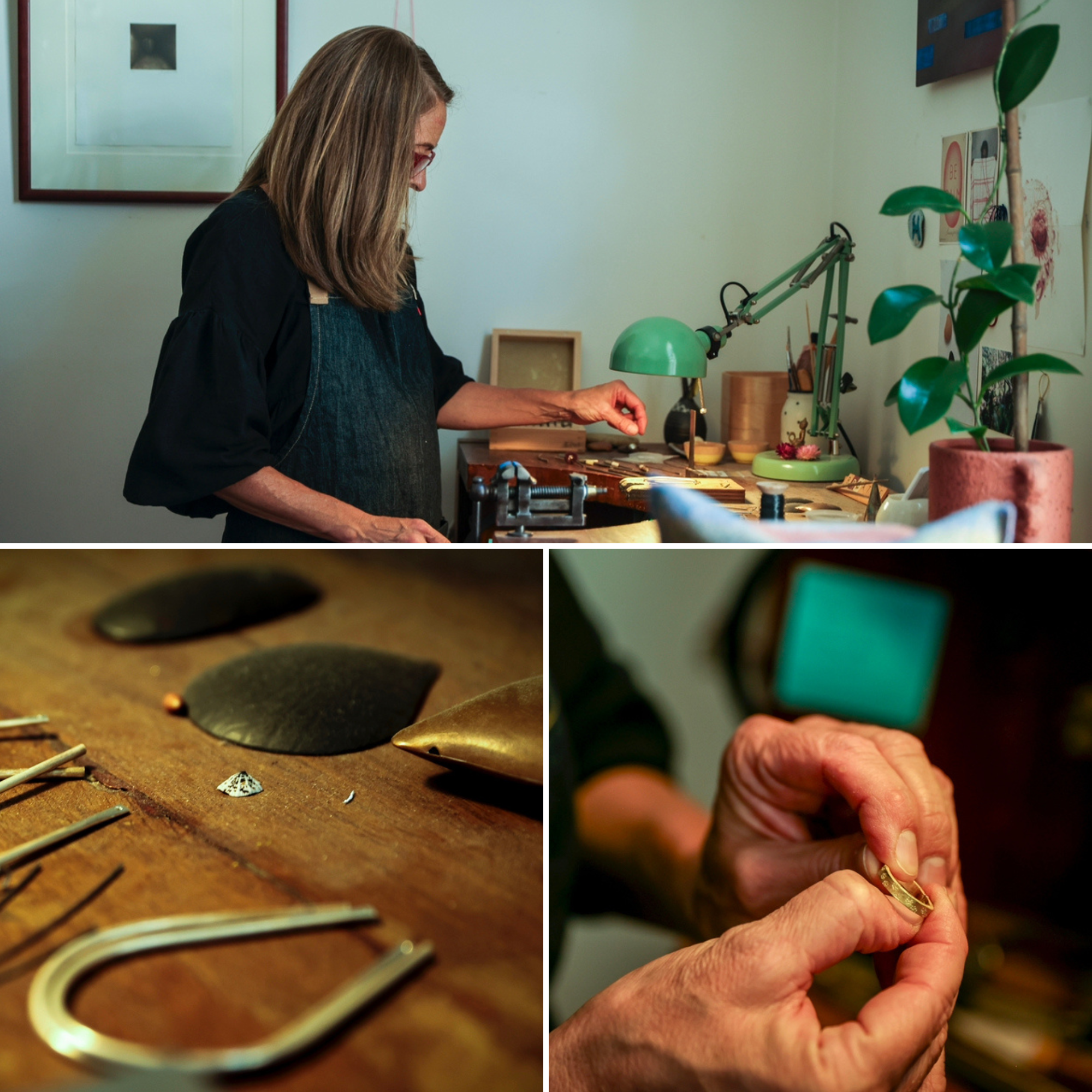
Belinda Newick’s Struggle with Polycystic Kidney Disease
Belinda Newick, working in her home jewellery studio, shared the heartbreaking reality of polycystic kidney disease running through her family. The disease claimed her mother at 62, her grandfather at 40, and her great-grandfather at 32. This hereditary condition also affected two of her siblings, leading to a critical point last year when the severity of her symptoms became life-threatening.
Despite outward appearances, the insidious nature of the disease was evident to Belinda. She emphasized the deceptive facade it presents, where one can seem healthy while facing imminent renal failure. Reflecting on her mother’s arduous 15-year dialysis journey, Belinda was determined to avoid a similar fate.
Having witnessed her mother’s near-death experiences due to the disease by the time she was 16, Belinda was deeply distressed. The urgency of her situation became apparent as her renal function approached total failure, underscoring the silent yet deadly progression of the disease.
With time ticking away, Belinda found herself in dire need of a new kidney. The pressing need for organ donation highlighted the critical issue of a record number of Australians awaiting life-saving kidney transplants.
The Decision Seemed Obvious
Kidney failure stands as the most prevalent type of organ failure in Australia.
Approximately 14,000 individuals are on dialysis, with a significant portion eagerly awaiting a kidney.
The majority of kidney transplants originate from deceased donors, while the remainder are from live donors, typically a friend or family member willing to donate one of their kidneys.
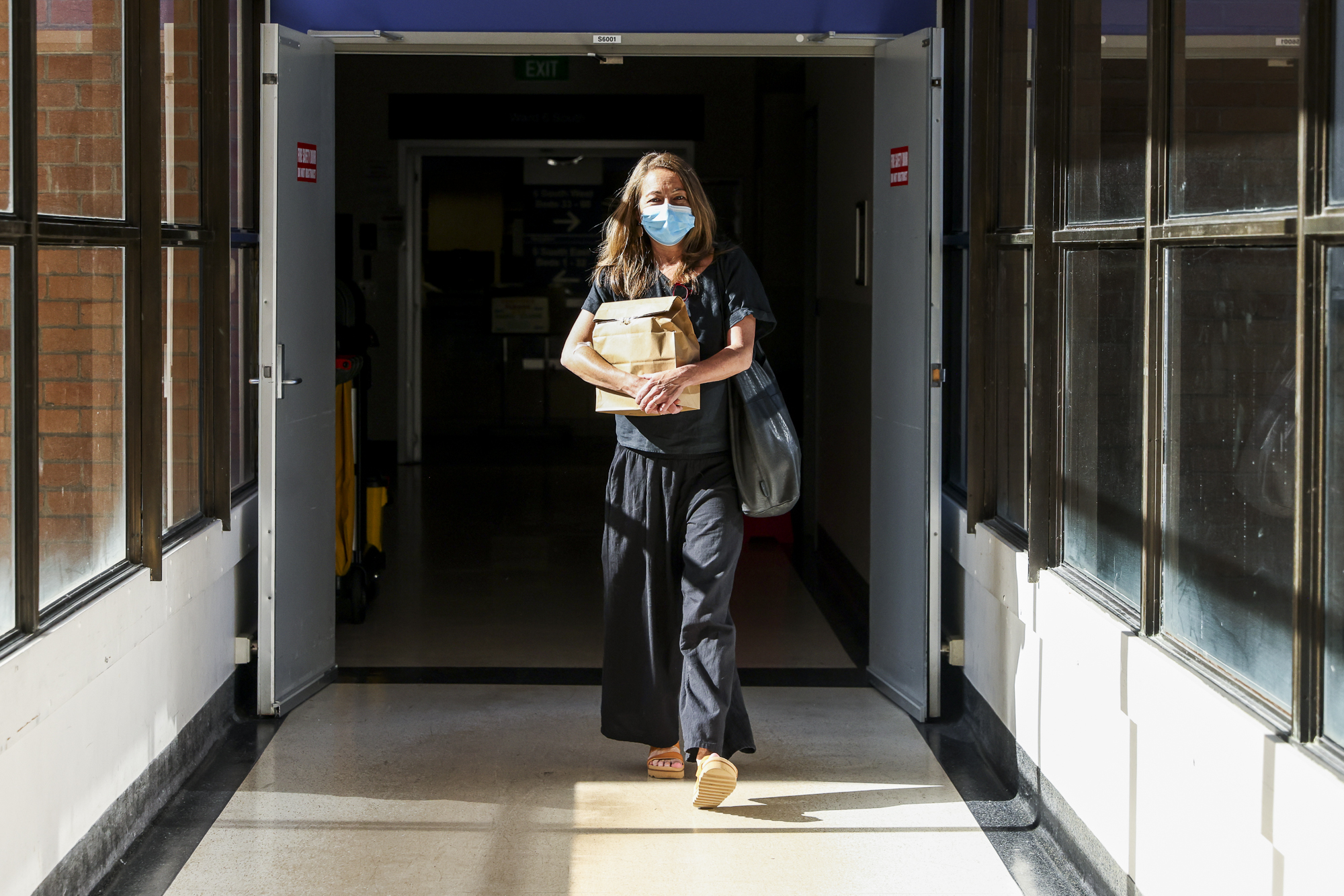
Belinda Newick made a firm decision to avoid long-term reliance on dialysis, recognizing the impact it would have on her life. Her husband, Nico Kelly, was eager to donate his kidney to her, hoping for a direct match based on their statistics, blood type, and antibodies. Unfortunately, testing revealed that he was not a suitable match.
Facing this challenge, the couple turned to the Australian and New Zealand Paired Kidney Exchange, administered by the Royal Melbourne Hospital, in search of a compatible kidney. Nico Kelly expressed immense relief knowing that the kidney Belinda received would significantly improve her quality of life and increase her longevity.
This innovative program facilitates kidney donations by connecting individuals who wish to donate to loved ones but are not compatible with others in similar situations. Moreover, the exchange welcomes contributions from altruistic donors. Despite the initial setback of COVID-related border closures in 2019, the collaborative efforts between Australia and New Zealand resulted in a successful year in 2023, with a remarkable 80 donors – 55 Australians and 25 New Zealanders, representing a significant portion of living kidney donations in Australia.
Program director Peter Hughes highlighted the program’s success, emphasizing the positive outcomes achieved once borders reopened, enabling cross-country matching and showcasing the program’s expanded reach. After a period of anticipation, Belinda Newick and Nico Kelly received life-changing news when the exchange’s algorithm identified a strong match for her.
In a heartwarming gesture, three of the couple’s friends also offered to donate their kidneys after Nico’s kidney was not a suitable match. Faced with a critical decision, the couple had to agree promptly to donate one of Nico’s kidneys to a stranger to secure a kidney for Belinda. Reflecting on this pivotal moment, Belinda expressed her emotional response, while Nico described the decision as an obvious choice, underscoring the profound impact of the exchange program.
The program’s success was further highlighted by the record-breaking number of Australian and New Zealander donors in 2023, demonstrating the growing impact and effectiveness of the paired kidney exchange initiative.
Record Number of Australians Offering Kidneys Despite Lack of Recipients
Decades of dedication by Helen Opdam, an intensive care specialist and the medical director of the Organ and Tissue Authority, have been focused on ensuring the identification of every potential organ donor.
“With 1,800 individuals awaiting organ transplants, the majority are in need of a kidney,” shared Associate Professor Opdam.
“The key is to have a robust deceased donation program alongside an active living donation program to facilitate transplantation for as many individuals as possible.”
While the primary source of kidney transplants in Australia comes from deceased donors, the collaborative effort with New Zealand through the paired exchange program has not only increased the pool of kidney donors but has also emphasized the significance of live donations.
“New Zealand’s emphasis on this initiative has resulted in a significantly higher rate of living kidney donors compared to Australia,” noted Associate Professor Opdam.
The success of the paired exchange program in setting new benchmarks is not solely attributed to the increased number of kidney donors.
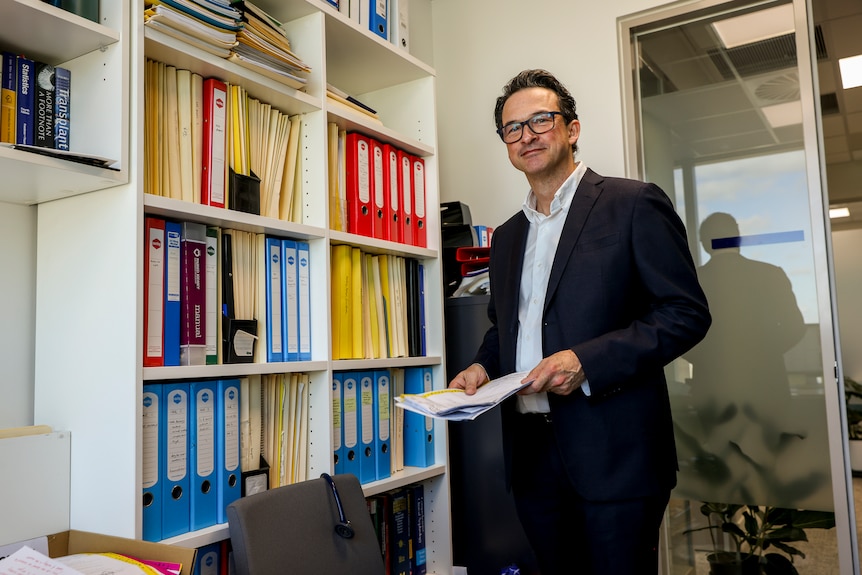
Record Number of Australians Receive Kidneys through Transplant Chains
In a statement by Peter Hughes from the Royal Melbourne Hospital, he highlights the common struggle faced by individuals with kidney failure in asking a loved one to consider donating a kidney (ABC News: Danielle Bonica).
While the kidney exchange program primarily involves direct swaps between pairs, there is a growing trend of altruistic donors joining the program. These donors selflessly volunteer to donate a kidney to anyone in need, even if they do not have a specific recipient in mind.
Associate Professor Hughes explains that these altruistic donors contribute to a chain or cascade effect within the program. This year, a chain initiated by an altruistic donor is projected to reach a milestone of 20, marking the longest chain in Australian history.
Notably, the previous year saw 11 altruistic donors kick-start transplant chains, accounting for approximately 80% of the paired exchange transplants.
‘The Mystery of My Kidney Recipient’
Stephen Liston, a 56-year-old man from Melbourne, selflessly donated one of his kidneys.
Having a chronically ill sister during his upbringing, Mr. Liston had contemplated organ donation ever since he first heard a radio segment many years ago.
It wasn’t until his children reached adulthood and his vision started deteriorating that he consulted his local GP about the possibility of becoming a donor.
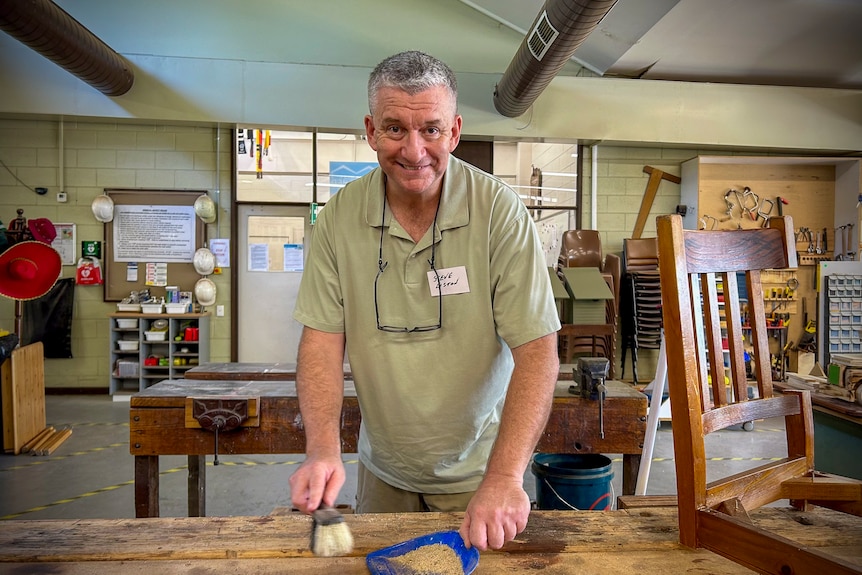
Steve Liston viewed donating a kidney as a unique way to contribute to the community as he coped with losing his eyesight. According to ABC News’ Loretta Florance, Liston expressed that losing independence due to vision loss made him seek ways to feel valuable again. The Melbourne resident underwent extensive medical and psychological evaluations and had to shed 10 kilograms before being deemed eligible for donation.
Immediately post-surgery, Liston briefly questioned his decision but quickly recovered. While he, like all kidney donors, will undergo lifelong health monitoring, he felt fully healed six weeks after the procedure. Nico Kelly, on the other hand, expressed a desire to directly donate his kidney to his wife. However, due to the paired kidney program’s anonymity, neither Kelly nor Liston knows the recipients of their kidneys.
Despite the anonymity, donors can send anonymous letters of gratitude. Liston was informed that his kidney set off a chain benefiting over ten individuals. The uncertainty of not knowing the recipient excites Liston, as he believes his kidney could have gone to anyone. Living donors generally yield better outcomes for recipients compared to those on the deceased donor waitlist, which can span several years.
Belinda Newick and her husband, Nico Kelly, had to swiftly decide whether Kelly would donate his kidney to a stranger. The process of living donor transplants is smoother and tends to have better long-term results. Associate Professor Hughes highlighted the advantages, stating that living donor transplants offer a smoother recovery, potentially allowing recipients to avoid or minimize dialysis and bypass long waiting lists for deceased donors.
In Australia, a record number of kidneys are being donated, reflecting a growing trend in altruistic organ donation.
Feeling a Bit Apprehensive
There was a hint of unease among all of us
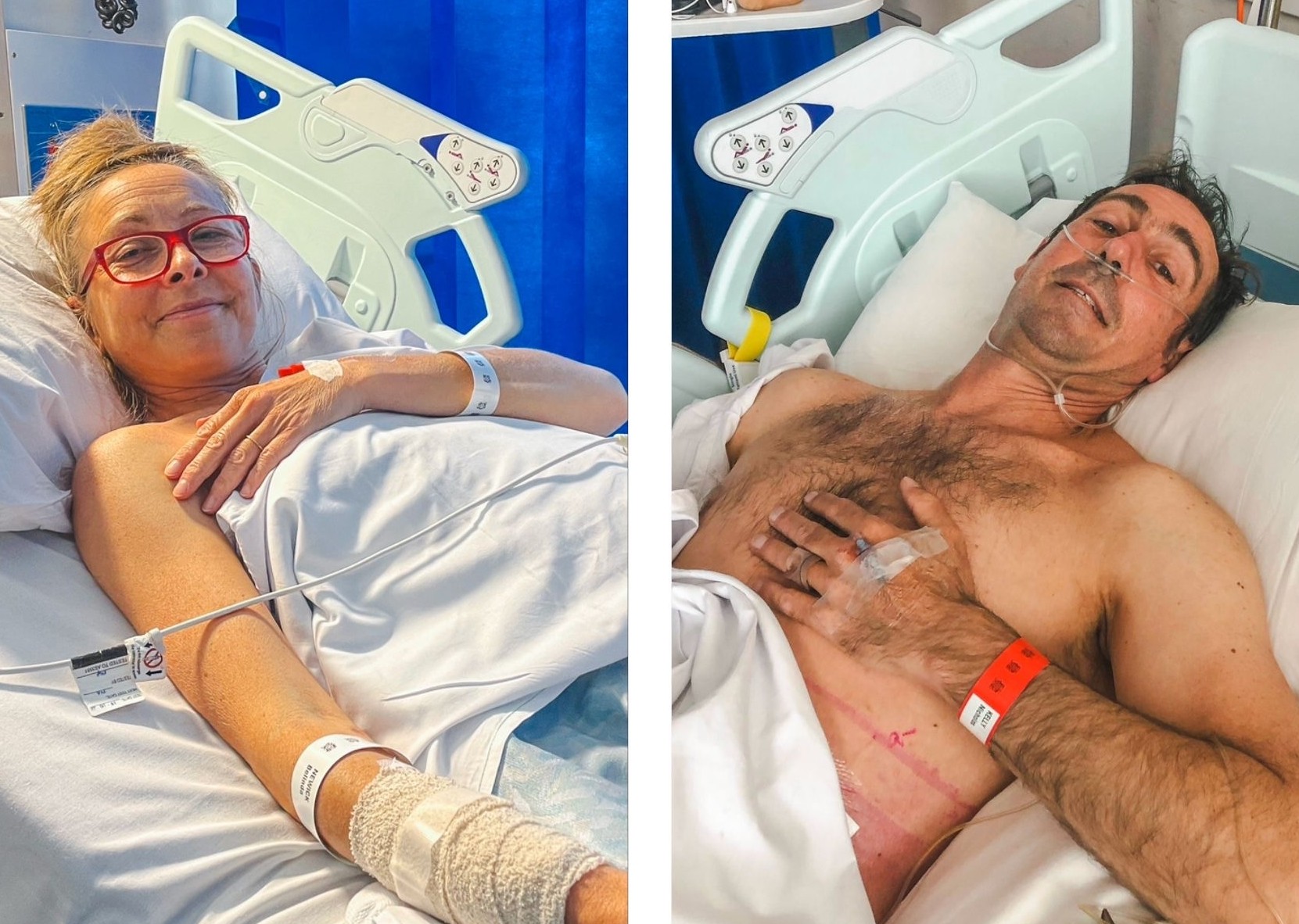
Record Number of Australians Receive Kidney Transplants
Belinda Newick and Nico Kelly both underwent surgery on the same day, resulting in a unique outcome. While Nico emerged with one kidney, Belinda left the operating room with three, showcasing the intricacies of organ transplantation. The process of matching donors and recipients is meticulous, marking the commencement of the transplant journey.
To ensure optimal outcomes, surgeries are often scheduled simultaneously. This approach minimizes the risk of unforeseen circumstances affecting the transplant process. In some cases, procedures may take place in different medical facilities, with organs transported in specialized containers across state borders and even to and from countries like New Zealand.
Concern for loved ones is a common sentiment among patients undergoing such procedures. Belinda Newick, accompanied by her husband, expressed anxiety about leaving their teenagers behind during surgery. The emotional toll on families is significant, as highlighted by Ms. Newick’s apprehension and her children’s deep concern for their parents’ well-being.
Fortunately, the Newick family received invaluable support from Belinda’s brother and his wife, who flew from Perth to assist during this challenging time. Drawing from their own experience with organ donation, they provided comfort and care to the worried teenagers in their parents’ absence.
Prior to Belinda’s surgery, Nico Kelly underwent the procedure, allowing the medical team to reassure her about the success of his operation. Witnessing her husband’s positive response to the transplant instilled hope and confidence in Belinda as she prepared for her own surgery.
The immediate impact of the kidney transplant was evident in Belinda’s improved health. Her kidney function skyrocketed from a mere 5% to nearly 70% shortly after the surgery. While she now relies on lifelong medications to support her new organ, her remarkable recovery is a testament to the transformative power of organ donation.
Gratitude radiates from Belinda Newick as she reflects on her journey. The gift of a functioning organ has not only restored her health but also filled her with profound appreciation for the selfless act of organ donation.
Please visit our site 60time.com for more inspiring stories. Don’t forget to follow us on social media at Facebook.
